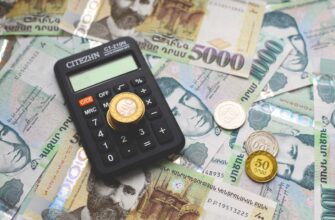- Understanding Crypto Taxation in South Africa
- How SARS Classifies Cryptocurrency for Tax Purposes
- Types of Crypto Income Subject to Tax
- Step-by-Step: Calculating Your Crypto Tax Liability
- Reporting Crypto Income to SARS: Practical Steps
- Consequences of Non-Compliance
- Pro Tips for Crypto Tax Compliance
- FAQs: Crypto Taxes in South Africa
Understanding Crypto Taxation in South Africa
With cryptocurrency adoption surging in South Africa, the South African Revenue Service (SARS) has clarified that digital assets like Bitcoin and Ethereum are subject to taxation. Whether you’re trading, mining, or receiving crypto as payment, failing to declare these earnings can lead to severe penalties. This guide breaks down everything you need to know about legally reporting and paying taxes on crypto income in South Africa.
How SARS Classifies Cryptocurrency for Tax Purposes
SARS treats cryptocurrency as an intangible asset rather than currency. This classification means:
- Crypto transactions trigger capital gains tax (CGT) or income tax depending on activity
- Regular trading is viewed as revenue generation (income tax)
- Long-term investing typically falls under CGT
- Mining and staking rewards are taxed as ordinary income
The onus is on taxpayers to maintain detailed records of all transactions for potential SARS audits.
Types of Crypto Income Subject to Tax
You must declare these common crypto-related activities:
- Trading Profits: Gains from buying/selling crypto on exchanges
- Mining Rewards: Value of coins received from mining operations
- Staking/Yield Farming: Earnings from validation rewards or liquidity pools
- Airdrops & Forks: Free token distributions with market value
- Crypto Payments: Income from goods/services paid in cryptocurrency
- DeFi Earnings: Interest from lending protocols
Step-by-Step: Calculating Your Crypto Tax Liability
1. Determine Income Type:
Classify activities as capital (CGT) or revenue (income tax). Frequent traders generally fall under income tax.
2. Calculate Gains/Losses:
Use SARS-approved methods:
- FIFO (First-In-First-Out): Default method where oldest assets are sold first
- Specific Identification: Track individual coin purchase prices (requires meticulous records)
3. Apply Allowable Deductions:
Offset gains with:
- Transaction fees
- Mining equipment costs
- Professional advisory fees
- Exchange withdrawal charges
4. Apply Tax Rates:
- Income Tax: Up to 45% (based on your tax bracket)
- Capital Gains Tax: Maximum effective rate of 18% after R40,000 annual exclusion
Reporting Crypto Income to SARS: Practical Steps
Follow this process during tax season:
- Maintain records of all transactions (dates, amounts, ZAR value, wallet addresses)
- Convert crypto values to ZAR using exchange rates at transaction time
- Complete ITR12 Income Tax Return form:
- Trading income: Declare under ‘Local Interest and Foreign Interest’
- Capital gains: Use the ‘Capital Gains Tax’ section
- File before SARS deadlines (typically October-November)
- Pay any owed taxes via eFiling platform
Consequences of Non-Compliance
Failure to declare crypto income may result in:
- Penalties up to 200% of tax owed
- Backdated interest charges (currently 10.5% p.a.)
- Criminal prosecution for tax evasion
- SARS audit of 5+ years of financial records
Pro Tips for Crypto Tax Compliance
- Use crypto tax software (e.g., TaxTim, CryptoTrader.Tax)
- Keep separate bank accounts for crypto transactions
- Retain records for 5 years post-filing
- Consult a SARS-registered crypto tax specialist
- Declare even if you made losses (they offset future gains)
FAQs: Crypto Taxes in South Africa
Q: Do I pay tax if I haven’t cashed out to ZAR?
A: Yes. Tax triggers when you dispose of crypto (trade, sell, spend), regardless of fiat conversion.
Q: How is crypto mining taxed?
A: Mining rewards are taxed as ordinary income at market value when received. Equipment costs are deductible.
Q: What if I lost money trading crypto?
A: Capital losses can be carried forward indefinitely to offset future capital gains.
Q: Are international exchanges reportable?
A: Absolutely. SARS requires disclosure of worldwide income, including foreign crypto activity.
Q: Can SARS track my crypto wallet?
A: While challenging, SARS collaborates with global agencies and exchanges. Non-disclosure risks severe penalties.
Q: How do I value airdropped tokens?
A: Use market value at receipt date. If worthless, no tax applies until disposal.
Staying compliant protects you from penalties while legitimizing South Africa’s crypto ecosystem. When in doubt, consult a tax professional familiar with SARS cryptocurrency guidelines.








